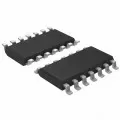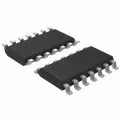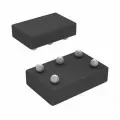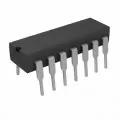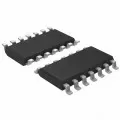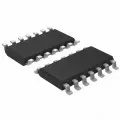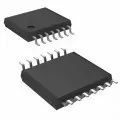OUTLINE:
Genset vs Inverter: Comparative Analysis of Power Solutions
 270
270Genset, which typically uses diesel or natural gas as fuel, is a helpful device that converts mechanical energy into electrical energy, consisting of one or more generators driven by an internal combustion engine. When the mains supply is interrupted, genset can be quickly turned on to provide the required power to the load.
Inverter is an electronic device that converts direct current (DC) to alternating current (AC), which is usually used in combination with a battery pack to form an uninterruptible power supply system (UPS). When the inverter firstly converts the input direct current through an oscillating circuit to alternating current, it will then adjust the voltage to the desired level through a transformer.
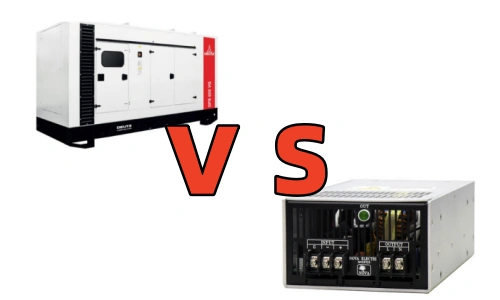
Detailed Comparison Between Genset And Inverter
Gensets are usually used to generate electricity, while inverters are used to convert direct current to alternating current or, in some cases, to improve the efficiency and quality of the power supply. And the following are the detailed comparison between them for your consideration.
|
Contrast dimension |
Genset |
Inverter |
|
Function |
Generate electricity |
Convert direct current to alternating current to improve power efficiency and quality |
|
Application scenario |
Suitable for situations where a stable power supply is needed, such as construction sites and emergency backup power supplies |
Suitable for occasions where AC power needs to be obtained from batteries or other DC power sources, such as vehicle systems and solar power supply systems |
|
Maintenance cost |
Higher, for they having more moving parts and complex mechanical systems |
Lower, they having a simpler design with fewer parts |
|
Energy efficiency |
Depending on the type and model of genset, conventional generators may not be very efficient |
More efficient, especially for variable frequency inverters, as it can adjust the power output according to the load demand |
|
Noise level |
Higher, especially for conventional gasoline or diesel generators |
Lower, especially for modern inverter technology |
|
Initial investment |
Higher, especially for high-power generator sets |
Lower, especially for small inverters |
|
Environmental protection property |
Depending on the fuel type, gasoline or diesel generators may emit more pollutants |
Higher, because many inverters use renewable energy sources, such as solar or wind power |
|
Stability |
Depends on the quality and maintenance of the generator set |
Higher, because inverters can provide very stable output voltage and frequency |
|
Applicability |
Useful in places where there's no mains supply |
Useful in systems that require power from batteries |
Genset vs Inverter: What Are The Advantages And Disadvantages
Genset and Inverter each have their own unique advantages and limitations. The choice of backup power solution depends on the specific application needs, budget, and environmental impact considerations. Before making a decision, it is recommended to evaluate the performance characteristics of each system in detail and consult a professional to obtain the best power solution.
Advantages
-
Genset
1. Wide power range: genset can provide a variety of power levels from small household to large industrial use.
2. Strong continuous power supply: as long as the fuel supply is guaranteed, genset can run continuously for a long time.
3. Suitable for heavy loads: genset can withstand loads with high power requirements.
-
Inverter
1. No noise, no emissions: the inverter is very quiet when working, and will not produce harmful gases.
2. Compact size: inverter design is compact, easy to install in a limited space.
3. Fast response: in the event of a mains interruption, the inverter can immediately switch to the standby power supply with almost no time delay.
|
Advantages of genset and inverter |
Genset |
Inverter |
|
Wide power range |
No noise, no emissions |
|
|
Strong continuous power supply |
Compact size |
|
|
Suitable for heavy loads |
Fast response |
Disadvantages
-
Genset
1. Noise and emissions: genset will produce noise and exhaust emissions during operation, which will have a certain impact on the environment.
2. Maintenance costs: regular maintenance and replacement of oil, filters and other components are required.
3. Larger volume: compared with the inverter, genset is usually larger in volume and takes up more space.
-
Inverter
1. Power limitations: The power of the inverter is usually lower than that of the Genset and may not be suitable for large or high power demand applications.
2. Battery dependent: The operation of the inverter depends on the state of the battery, which requires regular charging and maintenance.
3. High cost: high initial investment in high-quality inverters and supporting battery systems.
|
Disadvantages of genset and inverter |
Genset |
Inverter |
|
Noise and emissions |
Power limitations |
|
|
Maintenance costs |
Battery dependent |
|
|
Large volume |
High cost |
Applications Of Genset And Inverter
Genset
A genset, or generator, is a device that converts mechanical energy into electrical energy. They are used in a wide variety of scenarios shown as follows:
-
Emergency backup power: in the event of a primary power outage, genset can be used as an emergency power supply to ensure the continued operation of critical facilities such as hospitals, data centers, communication base stations, etc.
-
Mobile power: The portable genset can be used for outdoor activities, construction sites, remote areas, etc., to provide temporary power supply.
-
Industrial use: in factories, mines and other places, genset can be used as the main source of electricity to drive a variety of mechanical equipment.
Inverter
As for inverter, it is a device that converts direct current (DC) to alternating current (AC). Its application areas include:
-
Portable power supply: inverters can be combined with the battery to form a portable power pack to provide clean and stable power for devices such as laptops and mobile phones.
-
Solar system: in a solar power system, the inverter is responsible for converting the direct current generated by the solar panels into alternating current for connecting to the grid or supplying power to household appliances.
-
UPS (uninterruptible power supply) : inverters play a key role in the UPS system to ensure the continuous running of devices through battery power supply when the mains is interrupted.
Combination of genset and inverter
In some cases, genset and inverter can be used together to provide a more efficient and stable power solution. For example, an inverter can be connected to the output of the genset, to convert the alternating current into more stable and pure electricity, which is suitable for equipment with high power quality requirements. This combination can also improve energy efficiency and reduce operating costs.
In summary, genset and inverter have a wide range of application fields, and their combination can bring more benefits to meet the needs in different scenarios.
Which one is better: Genset Or Inverter
Taking it all together, choosing a generator set or an inverter depends on your specific needs. If you need a steady source of electricity, especially in places where electricity is not supplied from the grid, a genset may be a better choice. However, if you need AC power from a battery or other DC power source, or want greater energy efficiency and environmental protection, an inverter will be a more suitable choice.
For gensets, factors you may want to consider include the power required, operating time, maintenance costs, and environmental impact. For inverters, you may want to consider the type of inverter (such as pure sine wave or modified wave), size, energy efficiency rating, and whether additional features are required, such as remote monitoring or automatic switching capabilities.
In short, choosing the device that suits your needs requires a combination of many factors, including the cost, working efficiency, environmental friendliness, and application scenarios. It is recommended that you consult a professional to make an informed choice according to your specific situation.
Final Verdict
All in all, the choice of generator or inverter depends on your specific needs. If you need a constant supply of power in remote areas or during outages, then a generator may be a better choice, especially when it comes to cost and noise. However, if you only need to convert DC to AC occasionally, such as to power small appliances while camping, then an inverter may be more suitable, especially given its lower noise level and environmental benefits.

Disclaimer: The views and opinions expressed by individual authors or forum participants on this website do not represent the views and opinions of Chipsmall, nor do they represent Chipsmall's official policy.

share this blog to:


